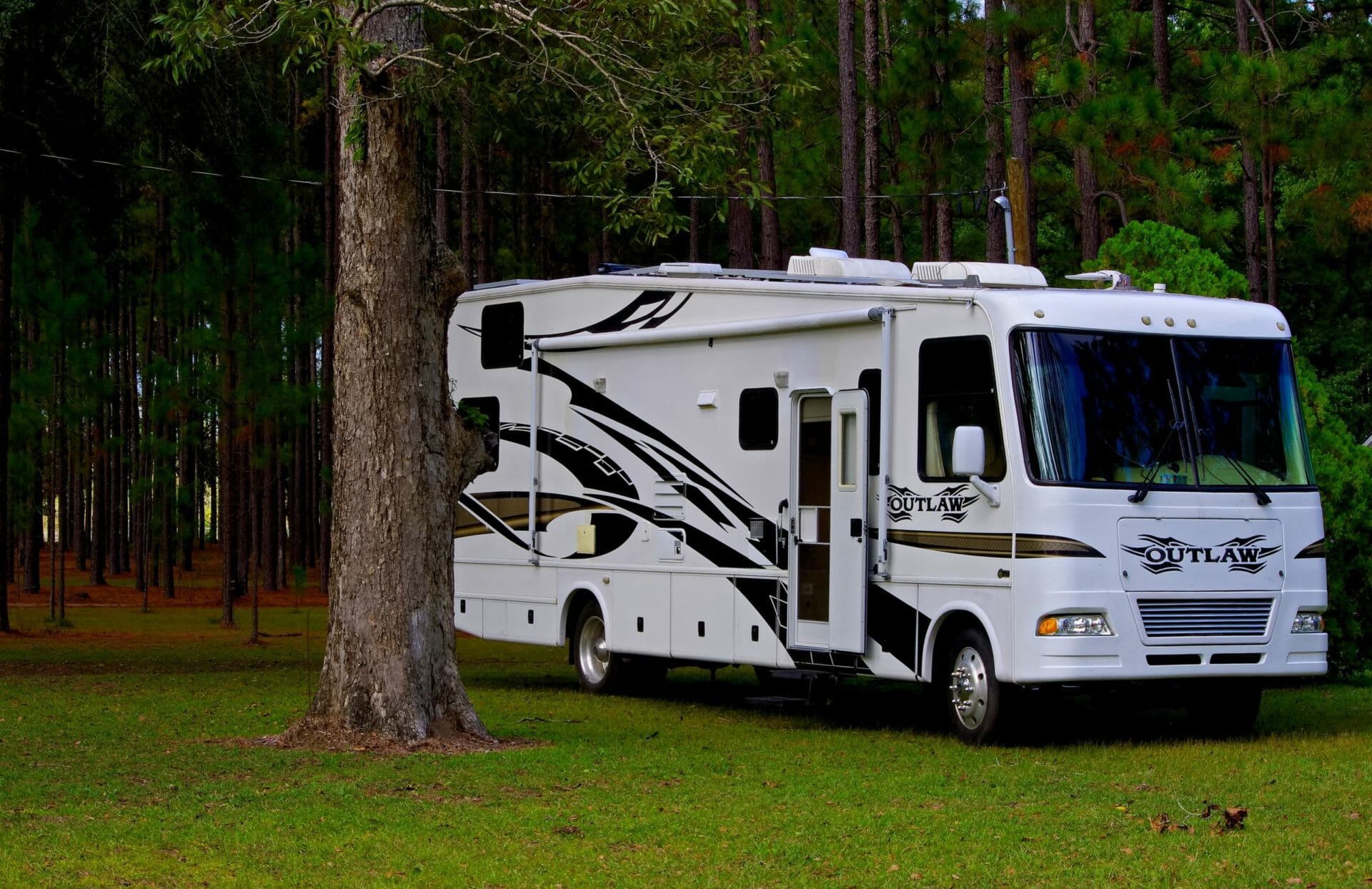Recreational vehicles (RVs) are loved by many people who enjoy travelling and exploring. They provide temporary accommodations on long road trips or camping expeditions. Retirees may even use their RV to travel from their winter home to their summer home.
However, RVs can be a point of contention in HOA communities. Associations don’t always welcome these vehicles onto the property because there is only a limited amount of parking space, or because RVs have the potential to bring down the value of a development. Some RVs are quite sleek and luxurious, but others are clunky and unsightly.
Defining an RV
There are four main RV classifications. An HOA may be okay with smaller Class B vehicles, but will outright ban large Class A RVs.
Class A
Class A vehicles are on the larger side. They are built on a heavy-duty frame and tend to be boxy, like a charter bus. They can be 35 feet long (or longer). You can purchase a luxurious Class A RV, or a more basic model. The newer Class A RVs look very clean, but they still don’t fit in the driveways of most communities. They must be parked on the street or stored off-site.
Class B
These are the smallest RVs. They are similar to vans, but they have a sleeping/living area, and a very small bathroom. They are typically built on a cargo van frame. Class B RVs are also known as camper vans or conversion vans. They can often be parked in a driveway, but they may be too tall to fit in a garage.
Class C
Class C RVs are generally hybrids of Class A and Class B vehicles. They are normally built on a van or truck frame. They are too big to be stored in a garage or driveway, and will need to be parked on the street or off-site.
Travel Trailers and Fifth Wheels
These are large units which must be towed by another vehicle. The larger trailers will require a substantial truck to haul. They are detachable but must be stored off-site, and the large truck may create additional issues because some HOAs have restrictions on work trucks and other large autos in driveways.
Can an HOA ban RVs?
It is possible for an HOA to ban all RVs. Boards have the right to reasonably restrict the parking or storage of recreational vehicles, watercraft, trailers or commercial vehicles (but there are some exceptions to this).
That being said, many HOAs do allow owners to park their RV on the street or in their driveway for 24 to 48 hours. This gives them the opportunity to load and unload the vehicle before and after a trip.
HOAs that do allow RVs to park on-site may require owners to move the vehicles before significant windstorms (like hurricanes) if they know bad weather is coming. While very heavy, lighter parts of an RV can be pulled off by strong winds.
If a homeowner decides to park an RV in their driveway for more than a couple of days and covenants and restrictions don’t allow for recreational vehicles, the owner can be issued a violation and/or a fine. Violations are essential for enforcement, but boards should be mindful of issuing violations that align with the infraction. For example, it would not be reasonable to issue a $500 fine for a first-time parking violation.
A warning letter may actually work best for a first-time offender because it provides an opportunity for polite discussion, and correction of an honest misunderstanding or mistake.
The biggest issue – parking
Parking is usually the reason why RVs are not permitted on an HOA development. If one person is allowed to park their 35-foot RV on the street, then every owner should have that right – but the reality is there is simply is not enough space. Most HOAs have rules for parking laid out in their CC&Rs or rules, typically covering restrictions like:
- What types of vehicles are allowed on the property
- Where members can park
- How long a vehicle can remain in one spot
When reviewing your HOA’s current parking rules, it’s important to understand the different authority given to an association for private roads versus public roads. Generally speaking, an HOA does has the authority to regulate private streets within its development, but doesn’t have the authority to enforce parking restrictions on public streets. However, parking can be a really murky issue when it comes to RVs. If the HOA’s governing documents explicitly prohibit the parking of recreational vehicles or work vehicles on public streets within the community, then owners likely must follow the HOA’s rules, even though the streets are public. Case law has upheld these restrictions as reasonable and enforceable.
Rather than enforcing a strict no RV policy, HOAs may consider allowing Class B RVs and other small trailers if they can be stored out of sight.
Where space is available, some developments may also designate an RV parking area away from the homes. By doing this, HOAs may be able to acquire some revenue for the community by charging a storage fee to RV owners. However, the board must be confident that the HOA can absorb any liability it may incur for theft, vandalism, etc.
RV Owner Insurance
RVs are big and they do have the potential to cause a lot of property damage. You may want to consider placing something in the association’s CC&Rs requiring adequate liability insurance for RVs.
Changing the rules
Some communities may be struggling with RVs and how to manage them. Changing the rules to ban RVs might be an option, but this can be a long and complex process. An RV is movable, so it wouldn’t meet the legal definition of an improvement of something attached to real estate on the development. Therefore, RVs wouldn’t typically be considered a covenant property right. The issue may have to be brought to court and a judge would need to determine whether there is an economic interest in an RV to be a real estate property right. If it was found to be a right, then the board couldn’t make any changes to the rules without an owner vote. However, if the courts didn’t find a property right, then a board could change the rules without an owner vote.
Keep in mind what this change could do to the community. If your HOA is a vacation or retirement community, and having an RV is central to many of the owners’ enjoyment of their home, that might be a compelling reason to accommodate owners.
Conclusion
Communication is key when it comes to regulating RVs in HOAs. Some developments will allow them, while there may be limitations in other associations. Because the rules can vary so greatly, it’s important to have clear and detailed information about RVs available to homeowners. When rules are too general or too vague, that’s when boards run into trouble.
Make sure RVs rules are included in the HOA’s governing documents, and make sure that homeowners have access to them. This issue can be complicated, so if you are having trouble with a particular homeowner or rule, ask a lawyer who specializes in HOA issues for guidance.
























